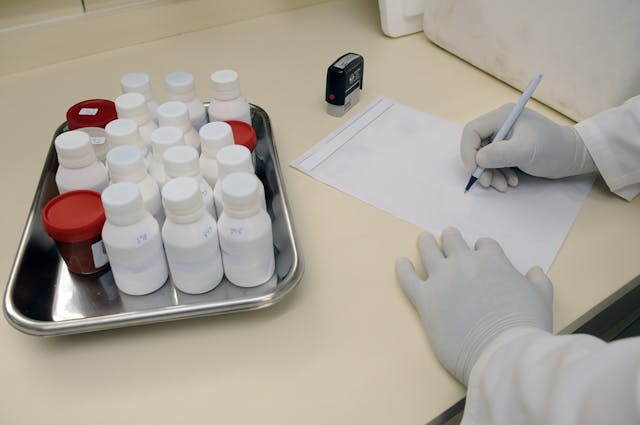Specialised medication management for elderly patients could significantly reduce their hospital stays and lower their mortality risk, according to new research conducted by Flinders University in partnership with Flinders Medical Centre. The findings, published in The Journal of the American Medical Directors Association (JAMDA), reveal that one in ten elderly patients experience ‘adverse drug reactions’ (ADRs) while hospitalised. This highlights a critical area for healthcare systems to address, particularly as the ageing population is likely to present with multiple chronic conditions and an increased medication load.
Dr Joshua Inglis, a researcher at the College of Medicine and Public Health and a Consultant Physician at the Department of Clinical Pharmacology in Flinders Medical Centre, stressed the importance of preventing medication-related harm. He noted that ADRs in patients aged 65 and older are associated with prolonged hospital stays and increased risk of death, underscoring the need for enhanced protective measures within hospitals. This growing issue calls for a strategic focus on medication safety and harm prevention as the demographic landscape shifts towards an older population.
The research team advocates for implementing multidisciplinary teams to manage specific classes of high-risk medications across hospitals. Individual doctors review patient medications during hospital stays, but a coordinated, hospital-wide approach could yield better outcomes. Dr Inglis suggested that medication stewardship programs, which have proven effective in managing antibiotic use, could be adapted to oversee the use of other high-risk medications such as opioids, anticoagulants, and psychotropics.
The study examined over 700 patients aged 65 and older admitted to Flinders Medical Centre over three years. Approximately 10% of these patients suffered from unwanted reactions to medications, which were directly linked to extended durations of hospital stay and a higher likelihood of death during their admission. This connection underscores the potential benefits of a more structured approach to medication management, aiming to reduce these adverse outcomes.
Adverse drug reactions were most commonly associated with medications used to treat high blood pressure and other cardiac conditions, as well as solid painkillers like oxycodone and antibiotics such as penicillin. The side effects from these drugs ranged from kidney and liver injuries to low blood pressure, sedation, nausea, vomiting, diarrhoea, and bleeding. Each instance of an adverse reaction not only extended the length of hospital stay but also increased the risk of death, highlighting a severe concern for patient safety.
Dr Inglis emphasised the novelty and significance of their findings, marking the first time a study has demonstrated a correlation between experiencing an ADR in a hospital and facing severe consequences such as extended hospitalisation or death. He called for healthcare organisations to develop proactive stewardship programs to prevent such adverse reactions. The research team also suggested that further studies involving different patient cohorts, such as older people living with dementia, could provide additional insights into improving health outcomes for the aged population and reducing the incidence of ADRs.
More information: Joshua M. Inglis et al, The Clinical Impact of Hospital-Acquired Adverse Drug Reactions in Older Adults: An Australian Cohort Study, The Journal of the American Medical Directors Association. DOI: 10.1016/j.jamda.2024.105083
Journal information: The Journal of the American Medical Directors Association Provided by Flinders University








